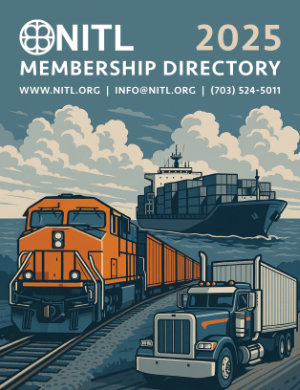The National Industrial Transportation League has filed comments with the Federal Maritime Commission (FMC) about proposed changes to the traffic mitigation fee assessed on containers moving through the Ports of Los Angeles and Long Beach during peak periods.
In 2005, marine terminal operators at the two ports created the OffPeak program to reduce truck traffic in and around the ports. The OffPeak program initiated night and weekend work shifts for cargo drop-off and pickup; to encourage use of these shifts, a traffic mitigation fee of $72.09/TEU is levied on cargo moving during peak hours, defined as 3:00 a.m.–6:00 p.m. weekdays and 8:00 a.m.–5:00 p.m. Saturdays.
On April 16, the two ports proposed to modify the OffPeak program by (1) replacing the current $72.09/TEU fee on peak-period cargo with a standard fee of $31.52/TEU for both peak and off-peak shifts and (2) using an appointment system to spread traffic across the two shifts. The FMC invited interested parties to submit comments on the proposed changes; in response, NITL encouraged its members to share their concerns, which the League outlined in its letter to the FMC.
“NITL generally does not oppose terminal truck appointment systems, which can help manage truck congestion at marine terminals,” the letter states. “However, our members have concerns regarding the propriety of the proposed container fee, which eliminates the incentive for importers to move their cargo during off-peak periods and, thus, may result in an increase in congestion during peak terminal operations—contrary to the very purpose of the original PierPass program.”
The letter also expresses concerns about how the container fee proceeds will be used and whether the appointment system will be able to accommodate the truck traffic.
“Our members are also concerned about the lack of transparency as to whether the revenue projected to be collected under the proposed container fee bears a direct relationship to the costs of the LA/Long Beach off-peak terminal operations, or if the new user fees will simply become a new operating revenue stream for the terminal operators,” the letter states. “Additionally, insufficient information is available to determine if the appointment systems will be adequate to meet the needs of the shipping public and create efficient cargo operations. Accordingly, the League asks the Commission to investigate these concerns and request additional information that will enable the Commission to determine if [these modifications] would be contrary to the Shipping Act.”


